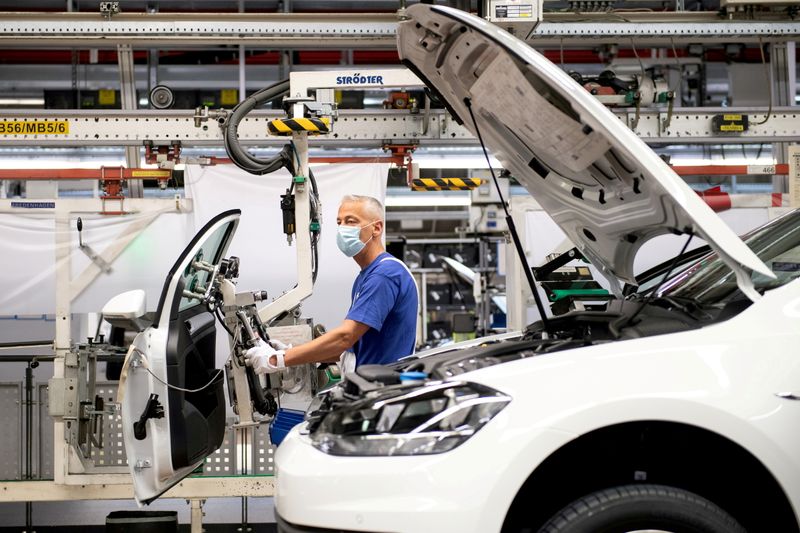By Jonathan Cable
LONDON (Reuters) - Euro zone manufacturing activity remained strong last month but was curtailed by supply chain bottlenecks and logistical problems which sent input costs soaring, a survey showed on Tuesday.
Ongoing disruptions caused by the coronavirus pandemic, alongside a shortage of heavy goods vehicle drivers, has caused product shortages and left factories struggling to get the raw materials they need.
IHS Markit's final manufacturing Purchasing Managers' Index (PMI) dipped to an eight-month low of 58.3 in October from September's 58.6, shy of an initial 58.5 "flash" estimate but still comfortably above the 50-mark separating growth from contraction.
An index measuring output, which feeds into a composite PMI due on Thursday and seen as a good guide to economic health, dropped to 53.3 from September's 55.6, its lowest reading since June last year.
"Overall, the demand side continues to be very strong so that's a positive sign," said Bert Colijn at ING.
"But input shortages and transportation problems are continuing to hurt the manufacturing sector and those issues appear to be here to stay for the foreseeable future."
Supply chain issues and rising inflation hit French, German and Spanish factories but Italian manufacturing recorded healthy expansion, growing at its strongest rate since June, earlier surveys showed.
And in the United States manufacturing activity slowed, a survey showed on Monday, with all industries reporting record-long lead times for raw materials, indicating stretched supply chains continued to constrain economic activity in the world's largest economy.
However, Asia's factory activity stepped up a gear in October as emerging economies saw COVID-19 infections subside, although rising input costs, material shortages and slowing Chinese growth clouded the outlook, Monday data showed.
Those shortages meant suppliers were able to jack up their charges, and the input prices index for the euro zone climbed to 89.5 from 86.9, the highest since the survey began in mid-1997.
Although the bloc's economy continued to boom over the summer as activity rebounded after coronavirus lockdowns, inflation is also blowing past expectations, official data showed last week.

European Central Bank President Christine Lagarde acknowledged last Thursday that inflation would be high for even longer but pushed back against market bets that price pressures would trigger an ECB interest rate hike as soon as next year.
"There are huge upward pressures on input prices and costs more generally, and these are likely to lead to high prices for consumers over time," said Andrew Kenningham at Capital Economics.